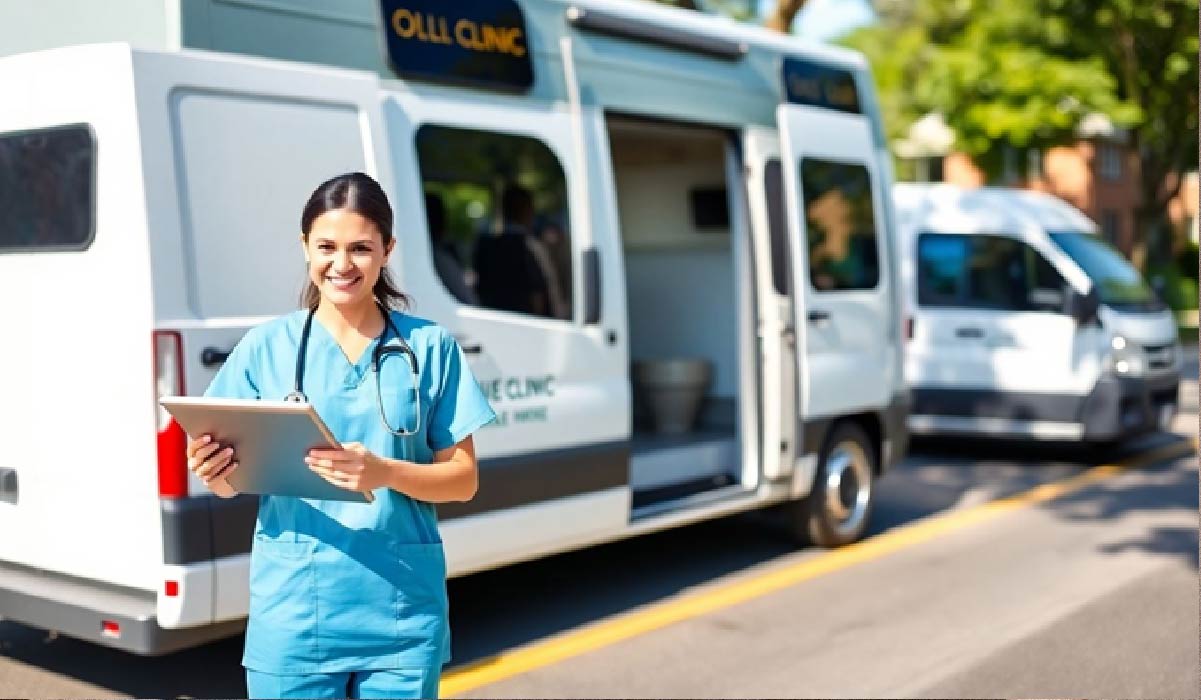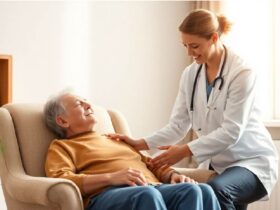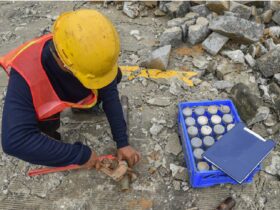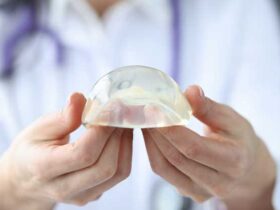Addressing Healthcare Gaps in Underserved Areas
Mobile medical care is making a real difference in Murfreesboro by reaching people who might otherwise struggle to get to a doctor’s office. Think about folks living further out from the city center or those with transportation issues. These mobile units go right to them, cutting down on travel time and making it easier to get the check-ups and treatments they need.
Services like Murfreesboro mobile urgent & primary care from Medical House Calls bring personalized medical support directly to patients’ homes, helping to bridge healthcare gaps in the community. This approach helps fill those gaps, especially in areas where traditional clinics might be scarce.
It’s about making sure everyone, no matter their location, has a shot at good health. The mobile clinic model is proving to be a smart way to tackle this, bringing services directly to neighborhoods that need them most. This expansion of access is a big deal for community health.
Bringing Comprehensive Services to Doorsteps
These mobile clinics aren’t just for quick visits; they often bring a range of services. Patients can get things like routine check-ups, vaccinations, and even some diagnostic tests without having to travel far. It’s about convenience and making healthcare more approachable for everyone.
The goal is to meet patients where they are, literally bringing comprehensive care right to their doorsteps. This makes preventative care much more accessible, which can lead to better health outcomes down the line. It’s a practical solution for busy families and individuals with demanding schedules.
The Role of Mobile Clinics in Community Health
Mobile clinics play a significant part in boosting overall community health. By providing regular access to medical services, they help manage chronic conditions and catch potential health problems early. This proactive approach can reduce hospital visits and improve the quality of life for many residents.
- Increased preventative screenings
- Better management of chronic diseases
- Reduced burden on emergency rooms
Mobile health units are becoming vital partners in building healthier communities, offering a flexible and responsive way to address local health needs.
Innovation in Murfreesboro Mobile Urgent & Primary Care
Meeting Patients Where They Are
Mobile medical care in Murfreesboro is changing how people access health services. Instead of patients traveling to a clinic, the clinic comes to them. This approach is particularly helpful for those with busy schedules or mobility issues. The convenience of having a medical provider visit your home or workplace significantly lowers barriers to receiving care. This model truly meets patients where they are, making healthcare more accessible than ever before.
Personalized and Attentive Patient Care
Many mobile clinics focus on building relationships with their patients. This often means a more personal touch than what might be found in a larger, traditional setting. Staff get to know patients by name and understand their individual health needs. This personalized approach can lead to better patient outcomes and a stronger sense of trust in the healthcare system. It’s about providing care that feels tailored to each person.
Pharmacists as Key Healthcare Providers
Pharmacists are increasingly playing a larger role in mobile healthcare. In Murfreesboro, some pharmacies are expanding their services beyond dispensing medication. They now offer things like blood pressure checks, vaccinations, and even prescriptions for common ailments. This allows pharmacists to act as frontline healthcare providers, working closely with patients and physicians. It’s a smart way to use existing healthcare professionals to broaden access to care.
The integration of pharmacists into mobile care models represents a significant shift, allowing for more immediate and localized health interventions.
- Expanded Services: Blood pressure screenings, vaccinations, minor ailment prescriptions.
- Patient Benefits: Increased convenience, reduced wait times, personalized attention.
- Community Impact: Eases strain on traditional clinics, improves preventative care access.
Mobile Health for Substance Use and Mental Health
Accessible Treatment for Rural Communities
Mobile clinics are making a real difference in reaching people in rural areas who need help with substance use and mental health issues. These services bring care directly to communities that might otherwise have very limited options. This approach helps bridge the gap in healthcare access for many.
It’s not just about convenience; it’s about providing a lifeline. For individuals struggling with addiction or mental health challenges, the journey to a clinic can be a significant barrier. Mobile units remove that obstacle, offering a more direct path to recovery and support.
Medication-Assisted Treatment and Counseling
These mobile units often provide medication-assisted treatment (MAT), which is considered a gold standard for treating substance use disorders. This treatment is combined with counseling and therapy sessions, creating a well-rounded approach to recovery. The goal is to offer a supportive environment where patients can receive the care they need.
The mobile health clinic is equipped to offer these vital services. Patients can meet with medical professionals who can prescribe necessary medications. This integrated care model aims to address both the physical and psychological aspects of addiction and mental health.
Reducing Strain on Local Facilities
By bringing specialized care directly to people, mobile health services can help ease the burden on local hospitals and emergency rooms. This is particularly important in areas facing high rates of mental health crises or substance overdoses. Mobile units act as an important first point of contact.
This model allows for more targeted interventions, potentially preventing situations from escalating to the point where emergency services are the only option. It’s a proactive way to manage community health needs and support individuals in a less overwhelming setting.
- Accessible Care: Brings treatment to underserved areas.
- Integrated Services: Combines medication with counseling.
- Community Support: Reduces pressure on traditional healthcare facilities.
Mobile health is proving to be a practical solution for addressing complex health needs, especially in areas where traditional services are scarce. It’s about meeting people where they are and providing them with the support they need to improve their well-being.
The Growing Demand for Mobile Medical Services
Responding to Increased Healthcare Needs
More people in Murfreesboro are looking for healthcare options that fit their busy lives. The traditional clinic model can be tough to manage with work, family, and other commitments. This shift means services need to come to the patient, not the other way around. The demand for mobile medical services is really picking up because it directly addresses this need for flexibility.
This growing demand isn’t just about convenience, though. It’s also about making sure everyone can get the care they need, when they need it. Mobile clinics are stepping in to fill gaps, especially for those who might have trouble getting to a fixed location. It’s a practical solution for a modern problem.
The flexibility offered by mobile medical care is a major draw for residents. It means less time off work, less arranging childcare, and generally a smoother healthcare experience. This is a big reason why more people are choosing this type of service.
Bridging the Gap in Healthcare Access
Mobile medical services are proving to be a key way to reach people who might otherwise miss out on regular check-ups or treatments. Think about folks in areas with fewer clinics or those with transportation issues. Mobile units go right to them, making healthcare more equitable.
This approach helps tackle health disparities head-on. By bringing care directly to neighborhoods, mobile clinics can catch health problems early. This proactive stance is vital for community health and can prevent more serious issues down the line. The demand for this kind of accessible care is clear.
Mobile medical care is not just a trend; it’s a response to real needs in our communities. It’s about making sure that where you live doesn’t dictate the quality of care you receive.
Enhancing Community Well-being
When healthcare is easier to access, people tend to use it more. This means more preventative care, more management of chronic conditions, and a healthier overall population in Murfreesboro. Mobile clinics contribute directly to this by removing common barriers.
These services build trust too. Having healthcare providers regularly visit a community can create stronger relationships. People feel more comfortable seeking help when they know and trust the people providing it. This is a big part of why the demand for mobile medical services keeps growing.
- Increased preventative screenings
- Better management of ongoing health issues
- Improved health literacy through direct interaction
Mobile Care Models in Tennessee
Partnerships for Enhanced Service Delivery
Tennessee is seeing innovative approaches to healthcare delivery, particularly through mobile clinics. These initiatives often stem from strong partnerships between academic institutions and private healthcare providers. For instance, Middle Tennessee State University (MTSU) collaborated with Cedar Recovery, an addiction treatment company, to launch a mobile clinic. This partnership, funded by a significant federal grant, allows for the deployment of a medically equipped RV to serve rural areas. The goal is to bring specialized care directly to communities that have historically faced barriers to accessing healthcare. This model highlights how collaboration can expand the reach of vital services.
Grant-Funded Mobile Health Initiatives
Federal and state grants play a big role in getting these mobile health services off the ground. A prime example is the $2.92 million federal grant secured by MTSU for their mobile addiction treatment clinic. This funding, part of a larger initiative to combat substance use disorders in rural areas, covers the operational costs and staffing for the mobile unit. It’s a clear demonstration of how targeted funding can address specific public health needs. The success of such grant-funded mobile health initiatives is crucial for reaching underserved populations.
Serving Diverse Patient Populations
Mobile care models in Tennessee are designed to be flexible and adaptable to the needs of various patient groups. The MTSU and Cedar Recovery clinic, for example, focuses on providing medication-assisted treatment and counseling for substance use disorders and mild to moderate mental health issues. Another initiative, a mobile clinic from Meharry Medical College, aims to serve remote areas lacking dental and primary care services. These diverse applications show a commitment to serving populations that might otherwise go without care. The adaptability of mobile clinics makes them ideal for reaching those who face geographical or economic challenges.
Benefits of Mobile Healthcare for Murfreesboro Residents
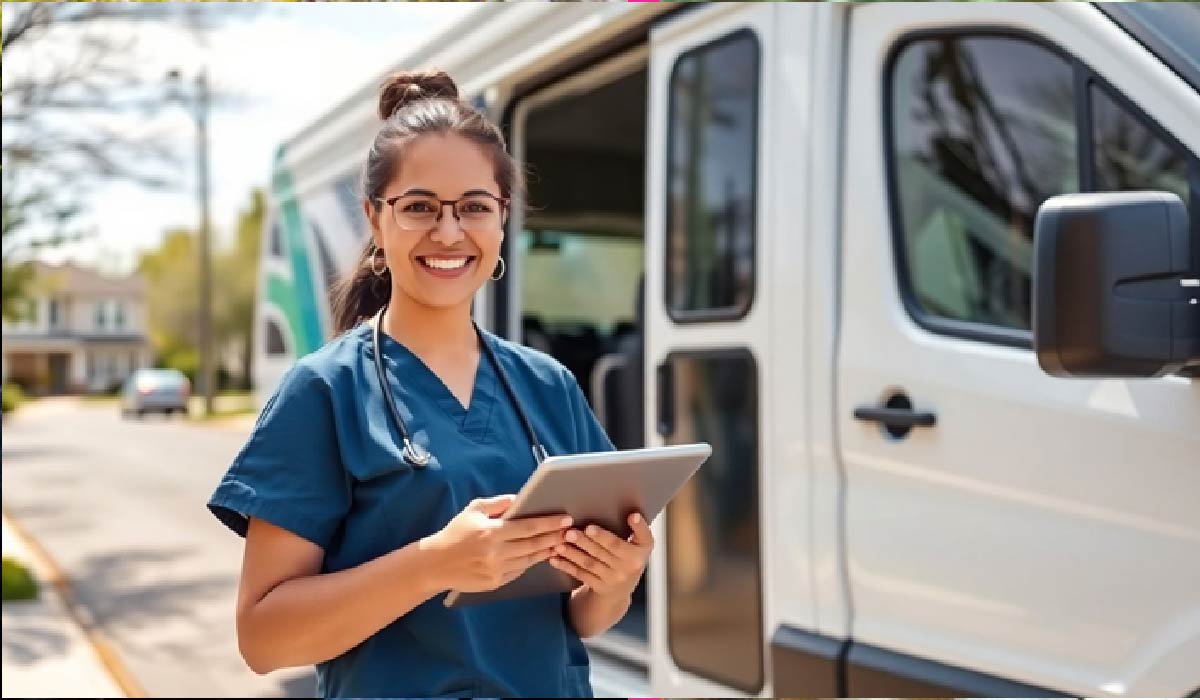
Convenience and Time Savings for Patients
Mobile medical care brings healthcare right to your doorstep, cutting down on travel time and the hassle of getting to a traditional clinic. This means less time spent in waiting rooms and more time for what matters. For busy families or individuals with demanding schedules, this convenience is a game-changer. Getting quality medical attention has never been easier.
Increased Access to Preventative Care
Mobile clinics make preventative services more accessible. Regular check-ups, screenings, and vaccinations are vital for staying healthy, but often get put off due to logistical challenges. Mobile health services remove these barriers, allowing more residents to engage in proactive healthcare. This focus on preventative care can lead to earlier detection of health issues and better overall health outcomes for the community.
Building Trust Within the Community
Mobile medical units often operate with a consistent team, allowing for the development of personal relationships between healthcare providers and patients. This familiarity helps build trust, especially in communities that may have historically faced barriers to accessing care. When people feel comfortable and understood, they are more likely to seek medical help when they need it. This approach to mobile healthcare is changing how people view and interact with the medical system.
The Road Ahead for Mobile Health in Murfreesboro
It’s clear that mobile medical care is becoming a bigger part of how people in Murfreesboro and the surrounding areas get help. From addiction treatment reaching rural spots to pharmacies bringing services right to neighborhoods, these mobile units are filling important gaps. They make healthcare easier to get, especially for those who might have trouble reaching a traditional clinic. As more of these services hit the road, it looks like convenient, community-focused healthcare is here to stay, making a real difference for many residents.


